As the term implies, trading psychology refers to the mental states and emotions that determine whether a trade will be successful or a failure. A trader’s trading psychology can be defined as a set of factors that affect a trader’s decisions regarding their trading actions, which are influenced by his character and behavior.
As with knowledge, experience, and skill, trading psychology can also be an important element in determining whether or not a trader will be successful in the trading market.
What is Trading Psychology?
As a general rule, trading psychology is associated with a handful of specific behaviors and emotions that are often thought to drive market trading decisions.
In traditional descriptions of emotional trading in the crypto market, greed and fear are generally attributed as the two most prominent motivations. In the next section, we will discuss greed in more detail.
Because of the fear that a trader foresees large losses, traders are prone to selling off positions prematurely or refraining from taking on the risk because they are afraid of taking a big loss.
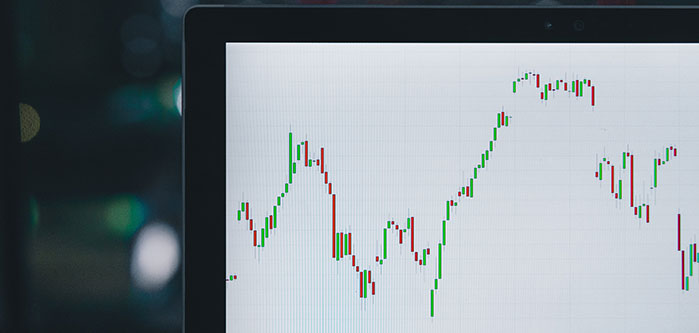
There is no question that when a market is in a bear market, there is a feeling of fear that is palpable, and it has the ability to make traders and investors act irrationally en route to exiting the market. It has been noted that fear can often translate into panic, leading to significant selloffs in the market as a result of panic selling.
A trader who regretfully missed out on an initial trade due to a fast movement of the coin – like Bitcoin – may get into the trade later on because of regret. When a trader violates the trading discipline in such a manner, it often results in a loss directly resulting from security prices falling from the peak highs of the market.
How Does Trading Psychology Affect Traders?
It is important to note that trading psychology is an extremely important factor that can make or break a trade regardless of other aspects – such as experience and trading knowledge – that influence the success of a trader.
In order for traders to be successful in their trading endeavors, they must control some of the emotions and feelings they experience. There are some emotions that traders experience that can be helpful, while others, such as nervousness, fear, and greed, can hinder trading success.
When a trader understands what trading psychology is and how it is applied, they will generally be able to avoid making decisions based on emotions or biases. In the worst-case scenario, they may be able to minimize the extent of their losses during a trade, and they may also have a better chance of making a profit during the trade.

Quick Decisions
We are living in a world that is restless. Sadly, today there is a trend of people seeking thrills without taking the risk and money without putting in any effort. You should never rush into making a trade as the market knows better than you do.
Wait for the right signal and be patient while you wait for it to come. It is a golden rule in crypto trading that no trade can be made without a signal. Prior to making any move, make sure you keep an eye on the market. Let the trading behavior dictate when it is time for you to enter the market, and then do so.
There is no doubt that patience is essential when it comes to waiting for the right trades, but it is also imperative when it comes to sticking with the trades which work for you. As a seller, you need to know when is the best time to sell and how to patiently wait for that time. You will not be able to increase your account balance exponentially at an ideal rate if you sell a winner too early in the game.
Fight FUD and FOMO
Negative sentiment can have a significant impact on the value of a coin, a company, a project, or even an entire market.
Almost all of us are very familiar with the fact that FUD is one of the greatest forces of evil in the world today. There is no doubt that FUD can make a brilliant investment taste sour very quickly when it hits with its full force.
An individual may experience FUD in many different ways, depending on the circumstances, such as a legitimate concern, a simple misunderstanding, media manipulation, or any number of other situations.
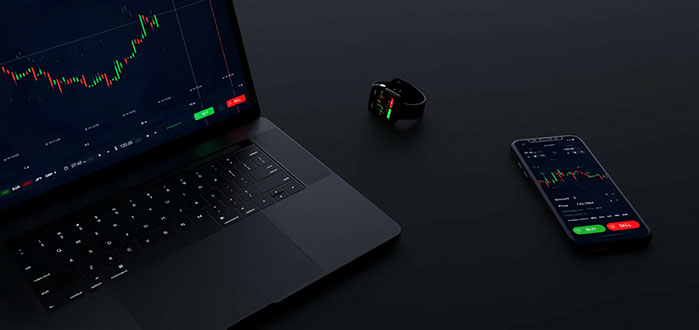
FOMO, as the name implies, is a concern for someone’s future well-being. Almost as simple as FUD in that it is a desire to make sure you get a portion of a coin or token before the value of it increases so much that you are willing to pay off the market price to guarantee you’ll be able to purchase it before the price rises (inevitably, in the mind of a FOMO’er) as well.
Greed, the Great Enemy
An excessive desire for wealth is commonly referred to as greed, which can be viewed as an excessive desire to acquire wealth, which can sometimes obscure rationality and judgment.
Therefore, this characterization of irrational behavior in investing or trading is based on the assumption that traders may be impacted by irrational emotions such as greed, and this can lead them to indulge in a variety of suboptimal behavior.
If you make a high-risk investment without doing any research about it or if you are buying coins in an untested project or new technology just because they are going up in price quickly, then you may end up making a mistake.
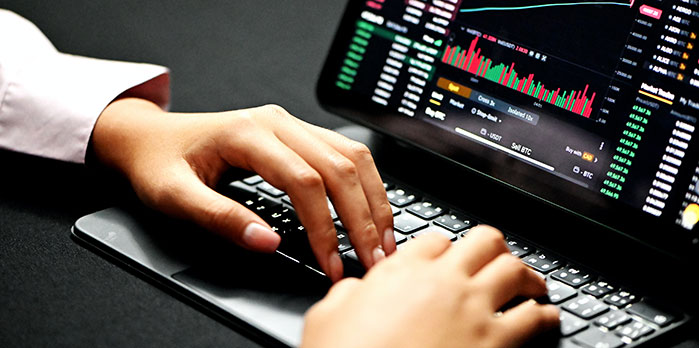
The greed of investors may even inspire them to stay in profitable trades for a longer period of time than is necessary to squeeze out an extra profit or to take on large speculative positions in order to squeeze out extra profits. Investors throw caution to the wind when speculation flourishes in the final phase of bull markets when speculation runs rampant, and investors throw caution to the wind as a result.
How to Improve Trading Psychology?
In order to improve your trading psychology, you can most easily do so by becoming more aware of your own biases, emotions, and traits as a person. If you acknowledge these factors and take them into account as part of your trading plan, you will be in a better position to minimize the effect they might have on your decision-making if they are taken into account.
Developing a successful trading mindset from the outset of your trading career is not something that can be done from the get-go. When it comes to learning from successes and mistakes, a robust trading mindset requires a certain level of patience and time to develop.
The best way to assist with that is to practice trading on a demo trading account in order to get used to it. A good trading psyche is a key component in developing a successful trader.
However, it is also essential for a trader to improve their trading skills and techniques as well. In addition to that, you do not have to take any risks with this program!
It is important for a new trader to work on a demo account for a certain period of time in order to gain a better understanding of price action and the rollercoaster of emotions it affords, giving them a better understanding of what he can expect when trading. This, in turn, builds confidence in the trader.
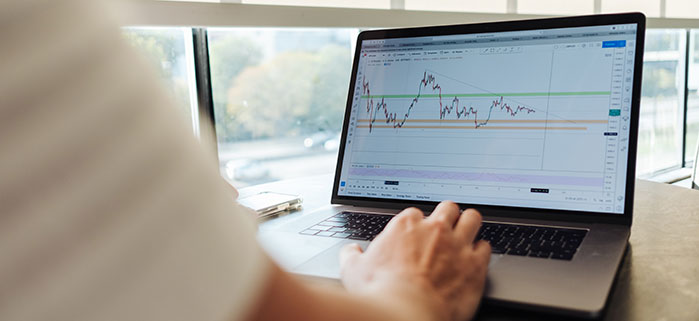
Right Mindset Before You Start Trading
Rather than rushing towards big profits, try starting slowly and see how you do instead of hurrying to make big profits right away. Before you get too deep into the markets, it is crucial that you tame this mentality before you get too engrossed in the ego trip of making big profits.
The setup or trading plan should always be at the top of your mind when you experience fear, greed, or overconfidence. It is important to keep in mind that luck is not correlated with success or failure in any way. As a result, the choice is not a result of what people do. Rather, it is the result of what they choose to do.
Read Books on Trading Psychology and Get Educated
It is possible to acquire a better understanding of how psychology works in investing by reading a variety of books. For the price of one book, you will be able to gain a great deal of knowledge and value that is incomparable to anything you will ever learn from any trading course, seminar, or conference you will ever attend.
Some of the best books are:
- Trading In The Zone by Mark Douglas
- The Daily Trading Coach – 101 Lessons For Becoming Your Own Trading Psychologist by Brett N. Steenbarger
- Thinking, Fast and Slow by Daniel Kahneman
- Reminiscences of a Stock Operator by Edwin Lefèvre
- Market Wizards Series by Jack D. Schwager
- Fooled by Randomness: The Hidden Role of Chance in Life and in the Markets by Nassim Nicholas Taleb
Have a Strategy Whenever You Trade and Set Your Own Limits
To be successful in the investment market, you need to have a clearly defined plan. That means that you need to establish which type of analysis you will use (whether it be fundamental analysis or technical analysis, or a mix of both), the advantages and disadvantages of each approach, how you will identify trades, and how you will manage them.
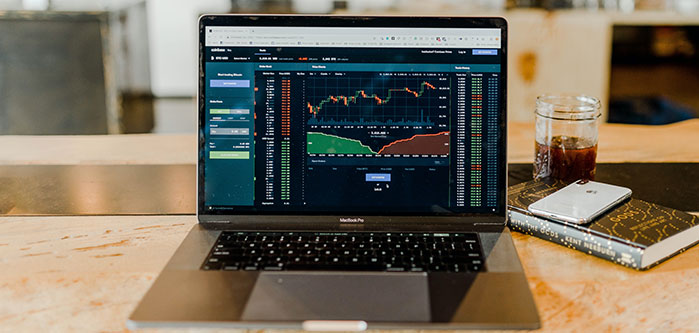
It is very important that you accompany this with a trading journal, where you can record your observations, identify your weaknesses and build on your strengths, all of which can help you avoid making common trading mistakes and become a profitable trader if you keep this journal.
It is not advisable to jump from one trading strategy to another, as it is likely to lead to emotional trading rather than rational trading.
While some traders may be comfortable taking larger risks and still manage to maintain a calm head during periods of not-so-small drawdowns, there are some who may be uncomfortable taking such risks.
There is, however, a chance that if you are just starting out or you have a low tolerance for risk in general, this will not end well for you. Identifying your own risk appetite is the first step to being able to plan accordingly based on it.
If you make a mistake, learn from the mistake
Many of us tend to make some mistakes over and over again when we are new to trading, and you may be able to observe some of these mistakes in your own trades when you have just started trading.
It is very common for people to make the mistake of going against major trend lines or temptations. There is a natural tendency in humans to try and pick highs and lows in the markets, but this method is not a consistent way of making money in the markets.

If you print out charts before placing trades, you will be able to spot this tendency much easier when you go back and review your trades. As a result, you will be able to find out what you need to be aware of in the future when trading online.
The first step you need to take is to come to the realization that you will need to commit to taking some time out of your schedule to sit down and review your trades as you go along. The best time to do this is away from the market excitement and gyrations, so weekends can be a good time to do this if you are able to.
It is important to keep track of both the winning trades as well as the losing ones. How would you approach the same market if you were confronted with it today? What would you do differently if you were in that situation? Could there be a mistake that you are committing time and time again that you ought to take note of in order to avoid in the future?
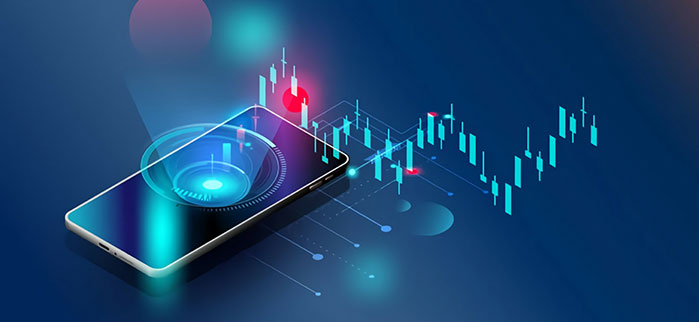
Conclusion
In order to be successful in trading in the financial markets, you need a wide variety of skills. A good example of one of these abilities is the ability to assess the fundamentals of a coin as well as the direction in which a trend is going. The technical skills a trader has are important, but neither is as important as the mindset that a trader has.
As part of what we might refer to as the trading psychology of a trader, one must be able to control emotions, think quickly, and exercise discipline.
It is also important for traders to periodically assess their own performance in order to improve it. Furthermore, traders must reflect on the preparation they put into their trading sessions, how up-to-date they are on the markets, and how they are doing in terms of their ongoing education, along with reviewing their returns and individual positions. By conducting periodic assessments, it is possible for a trader to correct mistakes, change bad habits, and improve their overall performance.








